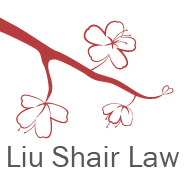Who needs to know?
During the Estate Planning process, we create customized, comprehensive plans that cover our clients’ wishes should something happen to them. Clients must appoint someone to administer their wishes, which typically is a trusted family member, friend, or can also be a corporate trustee or private professional fiduciary. We always remind our clients that their appointed successor must know that there is an Estate Plan, that they have been nominated to play an important role, and where they can access the Estate Plan and other important documents. Is there anyone else that will know now or someday about your Estate Plan?
This blog post seeks to answer these two questions.
Who needs to know about your Estate Plan when it was created?
As mentioned, the nominees that you have appointed to act to administer your wishes or act on your behalf (e.g. successor trustee, executor, power of attorney agent, guardian of minor children, health care agent) should be informed about the plan and about their nomination. In order for your assets to follow the Trust, the Trust needs to be funded. This means that you need to contact the financial institutions you hold accounts with to have them connect the Trust to the appropriate accounts. If you have Real Estate that will follow the Trust distribution, the pertinent County Recorder will need a deed recorded evidencing the Trust ownership. Also, if you have business interests, it is vital that there is a connection between the business share and your Trust. This may require letting the company know that you have a Trust and understanding their succession protocol.
There is no official repository for all the Estate Plans that have been created. This is why you must let those who should be aware know about your planning.
Who will find out about your Estate Plan someday?
When a client has passed away, then Trust Administration begins. This is when the successor Trustee works to distribute the assets according to your wishes as stated in your Trust and Will. Your successor Trustee will need to contact all of the beneficiaries, individuals or entities who are set to inherit, giving them notice that they are listed as beneficiaries. Your Trustee may also have to inform other close family members who are considered heirs.
In order for an Estate Plan to work and avoid probate, it has to be well thought out, uniquely designed for your family, fully funded, and the right people need to know it exists. If any one of those factors has not been satisfied, your Estate Plan may not accomplish your goals. Don’t leave this to chance; take this process methodically and seriously. Leaving your legacy secured is one of the greatest gifts you can give to your loved ones.

